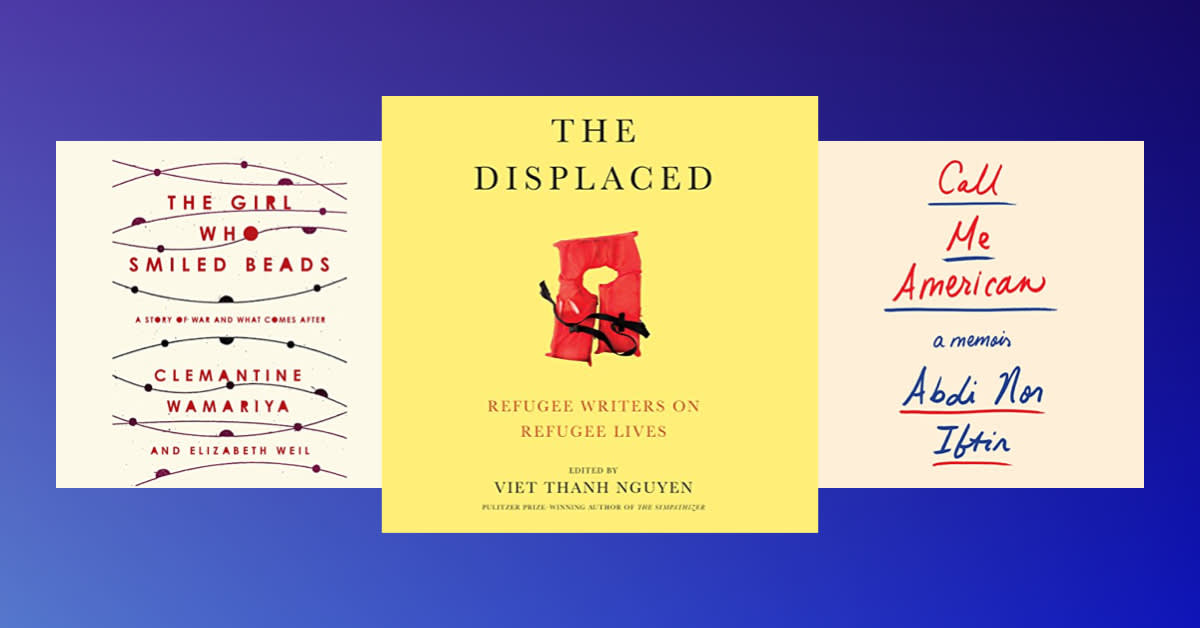Sociology audiobooks provide an easily accessible and convenient way to connect to a variety of topics and perspectives around the sweeping study of human nature and behavior. To get you started on your journey of discovery, we’ve gathered a sampling of the best sociology audiobooks available, from classics to biographies to contemporary releases. Whether you listen to an old favorite and gain fresh insights or dive into an unfamiliar title that challenges what you thought you knew, you're bound to learn something new and interesting about why people think and act the way they do—and maybe come to better understand yourself in the process.
Best Classic Sociology Audiobooks
The classics give us a basic understanding of core ideas that contemporary thinkers often respond to or engage with in their arguments. One of those classic texts is Max Weber’s The Protestant Ethic and the Spirit of Capitalism. First published in 1904, this book lays out Weber's case that the Protestant ethic—the moral value attached to hard work, thrift, and efficiency—is at the foundation of Western capitalism and its effects on society. Monroe Clark McBride narrates with clarity and precision, making Weber's compelling premise easy to follow and then either affirm or question.
Published in 1903, The Souls of Black Folk is the seminal work of one of the greatest intellectuals in our nation's history. In this series of essays, W.E.B. Du Bois discusses the racism that Black Americans routinely endured in the early 20th century and demands that it end. Throughout, the author draws on his life experiences to illustrate his points, interweaving a searing personal narrative and powerful ideas. Mirron Willis performs the audiobook, greatly enriching its prophetic and still timely message.
Viktor E. Frankl, a world-renowned psychiatrist, survived years in a Nazi concentration camp during World War II. These horrific experiences, paired with his years of scientific training, give him a uniquely intimate perspective on life’s most complicated questions. As a psychiatrist, Frankl used this theory to create a new kind of psychotherapy called logotherapy, which he himself used to come to terms with the trials and cruelties he experienced in his own life. In Man’s Search for Meaning, Frankl explains how anyone can use questions of meaning to process their own lives and arrive at a greater understanding of existence. Hall of Fame narrator Simon Vance deftly guides listeners through Frankl’s most complex musings, all of which are centered on the author’s main theory: the primary motivating force for human beings is their search for purpose and understanding.
First published in 1848, The Communist Manifesto has served as a cornerstone text for many different intellectuals and sociologists throughout history. Friedrich Engels and Karl Marx wrote this treatise to define their notion of Communism and how it would work in practice. Their ideas would go on to inspire governments around the world, affecting the lives of millions of people. Arinze Kene narrates the audiobook with dynamic force, capturing your attention and making this listening experience incredibly engrossing.
In 1978, Palestinian American intellectual Edward Said published Orientalism, establishing his place as a key voice for the foundation of contemporary discussions of colonialism. Orientalism sharply criticizes Western assumptions of superiority over the East, particularly over Asian and Arab countries. Said describes how this belief in their own superiority has been used by the West as justification of their colonialist and imperialist behavior. Peter Ganim’s performance provides a great accompaniment to this hard-hitting work.
Best Contemporary Sociology Audiobooks
From the author of Sapiens and Homo Deus comes 21 Lessons of the 21st Century, which tackles different topics debated by today’s intellectuals. In particular, Yuval Noah Harari discusses questions surrounding rapidly advancing technology and how human beings can maintain our freedom in the face of big tech companies gathering more personal data and more closely monitoring our behavior than ever before. How will robots change the workforce? What is happening to democracy? Derek Perkins narrates the audiobook, giving voice to Harari's concerns and capturing his urgency.
Our Towns follows James and Deborah Fallows’s journey across America as they learn more about how small towns are reinventing themselves to grow their economies and improve the everyday lives of their residents. Through creativity and innovation, these towns find new ways to attract business, grow their population, and repair themselves after many years of economic hardship as they display amazing resilience. The Fallows narrate the book themselves, making this listening experience truly special as we hear the authors recount the stories of small towns they came to know and admire.
As technology becomes more significant, human connection becomes more precarious. In Team Human, Douglas Rushkoff illustrates how algorithms and automation are replacing interactions between people and encourages listeners to rekindle bonds with each other and reclaim that fading connection. The author narrates the book himself, adding that special something that only happens when we get to listen to an author read their own work.
We all have an idea in our minds of what the lives of the rich and famous must be like, but Rachel Sherman asks the question: What do we really know of the lives of society’s most privileged? Through interviews with dozens of affluent New Yorkers, Sherman gives listeners an inside look at the lives of America’s most privileged citizens. Liz Thompson narrates Uneasy Street. Her performance proves she was the perfect choice for this audiobook.
In Caste, Isabel Wilkerson argues that American society is built on a caste system based on race. She discusses caste systems around the world and points out the similarities, and the striking differences, between America and these other caste systems. All-star narrator Robin Miles performs Caste, underscoring the importance of this brilliant audiobook.
Care Work stands as one of the most important texts in the discussion of disability justice. It celebrates disabled folks, particularly queer disabled people of color, who have worked on the frontlines of advocating for disability justice. Each essay provides new insight on how we can build a better society founded on mutual aid and caring and supporting each other. Piepzna-Samarasinha reads the book herself, bringing all of the passion and vibrancy to her performance that she gives us in her writing.
In one of the most beautiful pieces of writing in the last decade, Saidiya Hartman examines the lives of Black women making space for themselves in innovative and creative ways. Queer, defiant, resilient—Hartman gives the listener an intimate portrait of the urban Black woman at the turn of the 20th century. Allyson Johnson performs the audiobook, touchingly narrating the stories of these women’s lives.
One-of-kind writer and intellectual Audre Lorde was and still is one of America’s national treasures, and her incredible book Sister Outsider embodies some of Lorde’s most brilliant ideas. From encouraging others to think about the intersectionality of one’s activism to discussing a radical kind of motherhood, Lorde’s work is part of the cornerstone of contemporary discussions of inclusive feminism. Robin Eller's performance pairs brilliantly with Lorde’s narrative voice in her essays.
Karl Marx’s ideas had an incredible influence on modern perspectives, and this biography follows his life, giving listeners a background on how Karl Marx came to be the man who most famously wrote The Communist Manifesto. Biographer Jonathan Sperber questions much of contemporary society’s assumptions of Marx, and uses the newly available MEGA (the Marx-Engels Gesamtausgabe, the total edition of Marx's and Engels' writings) to give us a more well-rounded perspective of Marx’s life. Kevin Stillwell narrates this biography with crisp diction, matching the seriousness of his subject.
Written after 10 years of research across the archives of five countries, Mises: The Last Knight of Liberalism is the epic tale of the life of Ludwig von Mises, who championed the idea of liberty in a time when socialism was on the rise. Jörg Guido Hülsmann tells the epic story of Mises’s life, creating a pause-resistant drama out of this hefty biography. With his dramatic narration, Paul Strikwerda adds to the fast-paced feel of this audiobook.
First made famous in Freakonomics, Gang Leader for a Day tells the incredible story of the sociologist who joined a drug-dealing gang. What started out as a way for a grad student to impress his professors turned into a seven-year study in human behavior. Throughout the book, author Sudhir Venkatesh gives us the insights he’s learned from his unorthodox methods. Reg Rogers, Sudhir Venkatesh, and Stephen J. Dubner each narrate a portion of the audiobook, adding to the collective feel of the audio edition.
Cultural icon Rebecca Solnit shares an intimate look at her life in this incredible memoir, Recollections of My Nonexistence. From 1980s San Francisco to the present, Solnit argues that women are not just shaped by their personal experiences. Women are also deeply impacted by the expectations of society. Solnit reads her memoir herself, creating an intimate, one-of-a-kind listening experience.
In this biography of one of America’s most respected intellectuals, Aldon D. Morris follows the life of W. E. B. Du Bois. From his childhood in Massachusetts to his job as a professor in Atlanta, Du Bois’s life was one filled with passion and a determination to speak up against the racism he saw around him. In particular, Morris points out the importance of Du Bois’s work in the founding of sociology studies in the United States. K. Todd Freeman narrates the biography as if he’s a friend sitting next to you recounting the story of Du Bois’s life, which creates a warm and engrossing listening experience.
Biographer Timothy Brennan studied under Edward Said and remained friends with him until his death, so it seems fitting that he would be the one telling the story of Said’s life. Starting with his birth in Palestine, listeners follow Said’s life from refugee to respected academic speaking out against the West’s continued colonization of the East. Brennan paints a complex portrait of a man whose ideas changed the academic sphere in incredible ways. Timothy Andrés reads the audiobook with a stark clarity that pairs well with Brennan’s writing style.
In Fearing the Black Body, Sabrina Strings illustrates how Black women’s bodies have been feared and demonized throughout America’s history. She points out that the fear of fatness has nothing to do with health, but instead is rooted in racist ideas of what bodies are acceptable in society. There is an obesity epidemic in this country and poor Black women are particularly stigmatized as "diseased" and a burden on the public health care system. Strings explains that this fear of fat Black women took root more than 200 years ago. Allyson Johnson narrates the audiobook with clarity and emotion, making this significant work even better when listened to on audio.
Most of us have conversations with other people everyday, but how many of those conversations are effective at communicating what we intend them to? In this series of lectures developed into a book, Carol Ann Lloyd shares how each of us can use our conversations to create a richer form of communication that clarifies our intentions and thought processes. Lloyd narrates the audiobook herself, making it sound as if we are just sitting down for coffee with her as she explains her ideas.
Kendra Winchester is the co-founder and executive director of Reading Women, a podcast with LitHub Radio, and writes about audiobooks as a Contributing Editor for Book Riot.

























